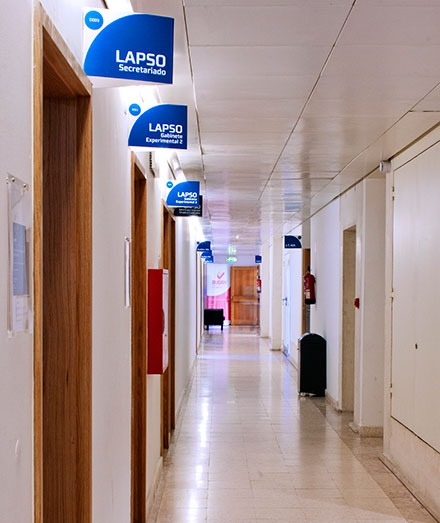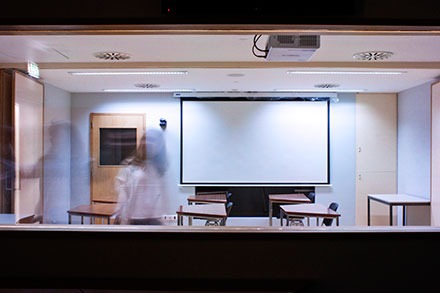LAPSO
Laboratory of Social and Organizational Psychology
At ISCTE-Instituto Universitário de Lisboa in Portugal, the research centre CIS-IUL has the mission to produce research on psychological processes, offer high quality training for the public and for young researchers, and provide the highest quality research conditions, among others.
CIS-IUL research activities are organized in collaborative groups of researchers sharing scientific interests and covering topics that range from basic psychological processes to intergroup relations and societal issues.
The Laboratory of Social and Organizational Psychology (LAPSO) at ISCTE-Instituto Universitário de Lisboa is used to conduct research, as well as to train students enrolled in different academic degrees (undergraduate, master, PhD and Post-graduate levels), allowing them to develop and strengthen their scientific and academic skills.
All courses provided by the Department of Social and Organizational Psychology benefit from the LAPSO resources. The MSc program “Science of Emotions”, for example, maintains a strong connection to the LAPSO, whose resources enable the study of affective processes in neurophysiological, behavioral and subjective components. The program reflects the extensive experience of the faculty in research and social intervention in the scientific field of emotions.


State-of-the-art laboratory
The laboratory consists of eight rooms, equipped with advanced tools to meet the various technical and methodological requirements. As researchers run different experiments, they are able to make use of soundproof cubicles, observation rooms for individuals or small groups, and a focus group room with an adjacent room with a one-way mirror for observation.
Data-integration is key
The extensive equipment enables researchers to measure different data and integrate the outcomes:
- EEG system to collect neurophysiological data.
- External data acquisition systems to measure physiological data, such as blood pressure, respiration, skin conductance.
- Eye trackers, which produce gaze path video and large quantities of rich data related to attention and emotion.
- FaceReader, for automatic analysis of facial expressions.
- E-Prime, a stimulus presentation program.
- The Observer XT, for the collection, analysis, and presentation of observational data.
With The Observer XT at the core of their lab, data synchronization can be guaranteed. This Noldus setup allows them to complete their studies accurately and efficiently. Studies in which coding of behavioral interactions in humans and also in Human-Robot-Interaction (HRI) are examples of research projects of their researchers.
 English
English German
German French
French Italian
Italian Spanish
Spanish Chinese
Chinese